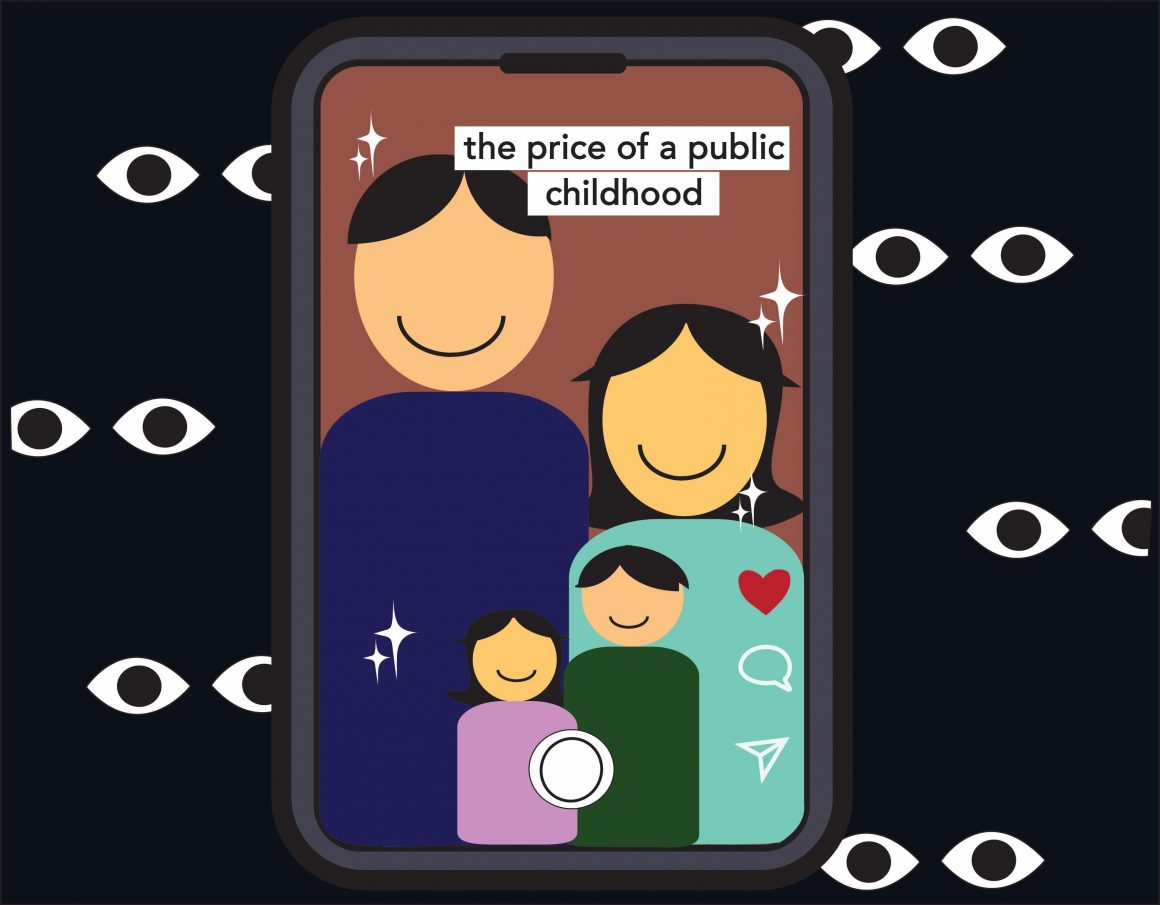
The price of a public childhood
By Vama Saini, October 16 2023—
In an era dominated by social media, we confront a moral dilemma about the disclosure of our children’s lives on the internet. It goes beyond mere potty training tales on Facebook. The digital footprint of a child now begins before birth, with parents posting ultrasound photos and due date announcements. What might initially appear as harmless family vlogging has evolved into a tightrope between innocent entertainment and potential exploitation, invasion of privacy and threats to our children’s safety.
Once upon a time, vloggers were adults who selectively showcased aspects of their lives. However, as time progressed, everyday activities lost their charm. Content creators found themselves compelled to escalate their efforts to keep pace with the rising stakes of the mid-2010s. Vlogs transformed into a spectacle of “look at what I have,” morphing daily life into a platform for flaunting mansions, luxury cars, shopping sprees and increasingly, their “picture-perfect” families.
What may seem like a family-friendly form of entertainment can, in reality, shape a psychologically damaging childhood, forcing children into the toxic world of “influencer culture” before they even have a say. From embarrassing childhood photos resurfacing to becoming targets of cyberbullying and potential threats from predators, the risks tied to sharing children’s content online are numerous and severe.
Family vlogging has evolved into a massive industry. It’s not merely the digital evolution of home movies -— it’s exploitative child labour that demands immediate attention and regulation.
In 2020, a petition with over 17,900 signatures urged child protective services to investigate the parents behind the “8 Passengers” YouTube channel, following growing concerns about their parenting methods. Ruby Franke, the parent behind the channel, had faced mounting backlash for her strict parenting methods over the years.
Just recently, Ruby Franke was arrested, along with her business manager, on child abuse charges after her 12-year-old son sought help from a neighbour in an emaciated condition.
Sadly, the Franke Family is not an isolated case. The children of these family channels are constantly recorded without defined limits, and their activities are performed for entertainment. The format sets parents up to profit from exploiting their children for views and advertising revenue, but it’s debatable whether children should even be on these channels due to their inability to consent to such an invasion of their privacy.
In 2017, Heather and Michael Martin, who ran a YouTube account called “FamilyOFive,” were charged and eventually convicted of child neglect after pulling disturbing pranks on their children and verbally abusing them for an online audience. In 2020, Myka Stauffer, a YouTube creator who had documented her adoption journey, gave away her adoptive son after creating a slew of content about his medical problems.
The nature of child labour in family vlogging mirrors the historical struggle for children’s rights that took place in early Hollywood. Unions and parents advocated for limits on the hours child actors could work each day, acting permits and financial protections to secure a portion of their earnings for the future. Even today, in Hollywood, the struggle persists to enforce these protections.
Similarly, family vlogging parents directly control how much their children are on screen, opening the door to potential exploitation. These families create content primarily within their homes where workplace regulations are absent. By being the main focus of the videos, children inevitably become the faces of their family’s brand, using their likeness to turn these young children into the breadwinners of their families.
These kids will eventually grow into adults, and their entire upbringing will remain accessible for the world to see on the internet. Ironically, the parents who are cautious about sharing their own childhood and intimate moments on the internet appear to neglect what is in the best interest of their child. This oversight represents a conscious decision. These parents struggle to see their children as distinct individuals rather than mere extensions of themselves.
The rise of family vlogging raises growing concerns about its impact on children. Parenting in this age of digital exposure presents a delicate balancing act — sharing cherished moments while safeguarding their children’s privacy and well-being.
This article is a part of our Opinions section and does not necessarily reflect the views of the Gauntlet editorial board.
